Filter by

Small sample size solutions : a guide for applied researchers and practitioners
Researchers often have difficulties collecting enough data to test their hypotheses, either because target groups are small or hard to access, or because data collection entails prohibitive costs. Such obstacles may result in data sets that are too small for the complexity of the statistical model needed to answer the research question. This unique book provides guidelines and tools for impleme…
- Edition
- -
- ISBN/ISSN
- 9780429273872
- Collation
- xiv, 269p. : ill.
- Series Title
- -
- Call Number
- 519.542 SMA s
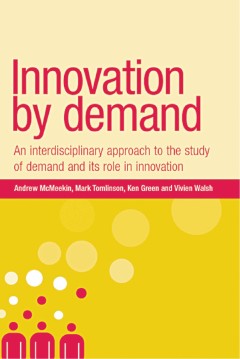
Innovation by demand : an interdisciplinary approach to the study of demand a…
The structure and regulation of consumption and demand has recently become of great interest to sociologists and economists alike, and at the same time there is growing interest in trying to understand the patterns and drivers of technological innovation. This book brings together a range of sociologists and economists to study the role of demand and consumption in the innovative process. The b…
- Edition
- -
- ISBN/ISSN
- 9780719062674
- Collation
- viii. 214p. : ill
- Series Title
- -
- Call Number
- 338.064 INN i
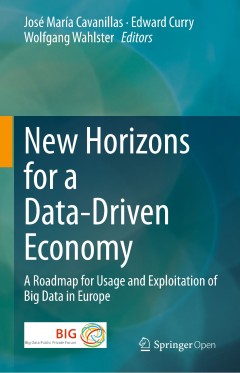
New horizons for a data-driven economy : a roadmap for usage and exploitation…
In this book readers will find technological discussions on the existing and emerging technologies across the different stages of the big data value chain. They will learn about legal aspects of big data, the social impact, and about education needs and requirements. And they will discover the business perspective and how big data technology can be exploited to deliver value within different se…
- Edition
- -
- ISBN/ISSN
- 9783319215693
- Collation
- xx, 303p. : ill.
- Series Title
- -
- Call Number
- 005.7 NEW n
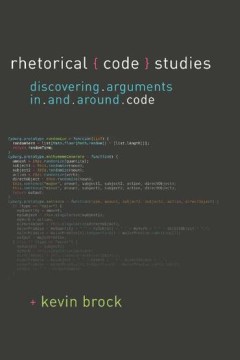
Rhetorical code studies : discovering arguments in and around code
Winner of the 2017 Sweetland Digital Rhetoric Collaborative Book Prize Software developers work rhetorically to make meaning through the code they write. In some ways, writing code is like any other form of communication; in others, it proves to be new, exciting, and unique. In Rhetorical Code Studies, Kevin Brock explores how software code serves as meaningful communication through which softw…
- Edition
- -
- ISBN/ISSN
- 9780472131273
- Collation
- xvii, 213p. : ill.
- Series Title
- -
- Call Number
- 005.13 BRO r

The lecturer's guide to quality and standards in colleges and universities
A follow-up volume to "Managing Teaching and Learning in Further Education and Higher Education", this text provides a guide to managing quality and standards from the lecturer's point of view. It covers key issues such as teaching, learning, student support, assessment, evaluation, course design, bidding for and managing resources, marketing and research.; Based on the model of lecturer as ref…
- Edition
- -
- ISBN/ISSN
- 9780203975534
- Collation
- viii, 224p. : ill.
- Series Title
- -
- Call Number
- 378.1250941 ASH l

Making publics, making places
This book focuses on the surprising generative possibilities which digital and smart technologies offer media consumers, citizens, institutions and governments in making publics and places, across topics as diverse as Twitter audiences, rural news, the elasticity of the public sphere, Weibo, cultural heritage and responsive spaces in smart cities. Multidisciplinary perspectives engage with crit…
- Edition
- -
- ISBN/ISSN
- 9781925261431
- Collation
- xviii, 216p. : ill.
- Series Title
- -
- Call Number
- 307.76 MAK m
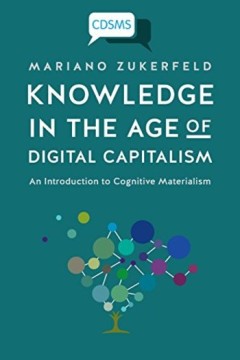
Knowledge in the age of digital capitalism : an introduction to cognitive mat…
Knowledge in the Age of Digital Capitalism proposes a new critical theory concerning the functioning of capitalism and how we consider knowledge and information. This ambitious book systematically and lucidly introduces contemporary phenomena into the framework of cognitive materialism to address some of the great themes of the social sciences: knowledge, exploitation and social class in an acc…
- Edition
- -
- ISBN/ISSN
- 9781911534273
- Collation
- ix, 261p. : ill.
- Series Title
- -
- Call Number
- 303.4833 ZUK k
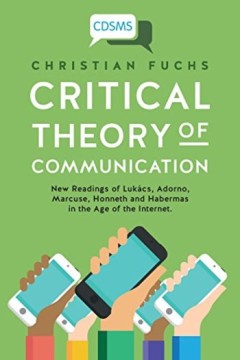
Critical theory of communication : new readings of Lukács, Adorno, Marcuse, …
"This book contributes to the foundations of a critical theory of communication as shaped by the forces of digital capitalism. One of the world's leading theorists of digital media Professor Christian Fuchs explores how the thought of some of the Frankfurt School’s key thinkers can be deployed for critically understanding media in the age of the Internet. Five essays that form the heart of th…
- Edition
- -
- ISBN/ISSN
- 9781911534075
- Collation
- iv, 230p. : ill.
- Series Title
- -
- Call Number
- 301.01 FUC c
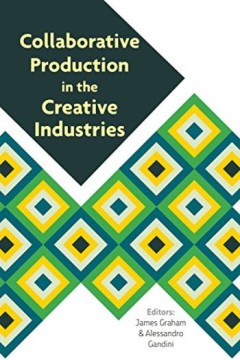
Collaborative production in the creative industries
"In recent years research into creative labour and cultural work has usually addressed the politics of production in these fields, but the sociotechnical and aesthetic dimensions of collaborative creative work have been somewhat overlooked. This book aims to address this gap. Through case studies that range from TV showrunning to independent publishing, from the film industry to social media pl…
- Edition
- -
- ISBN/ISSN
- 9781911534310
- Collation
- vii, 231p. : ill.
- Series Title
- -
- Call Number
- 338.477 COL c
 Computer Science, Information & General Works
Computer Science, Information & General Works  Philosophy & Psychology
Philosophy & Psychology  Religion
Religion  Social Sciences
Social Sciences  Language
Language  Pure Science
Pure Science  Applied Sciences
Applied Sciences  Art & Recreation
Art & Recreation  Literature
Literature  History & Geography
History & Geography